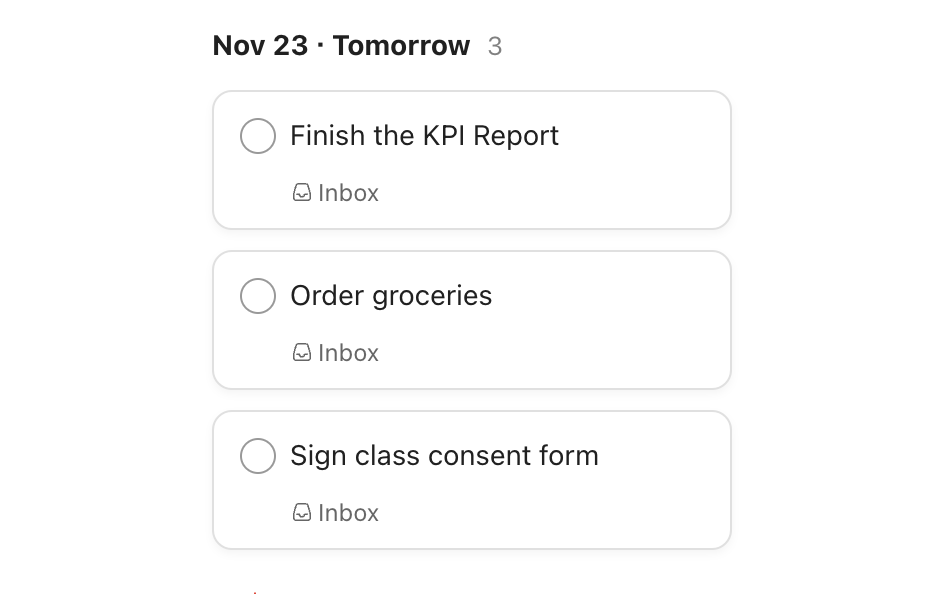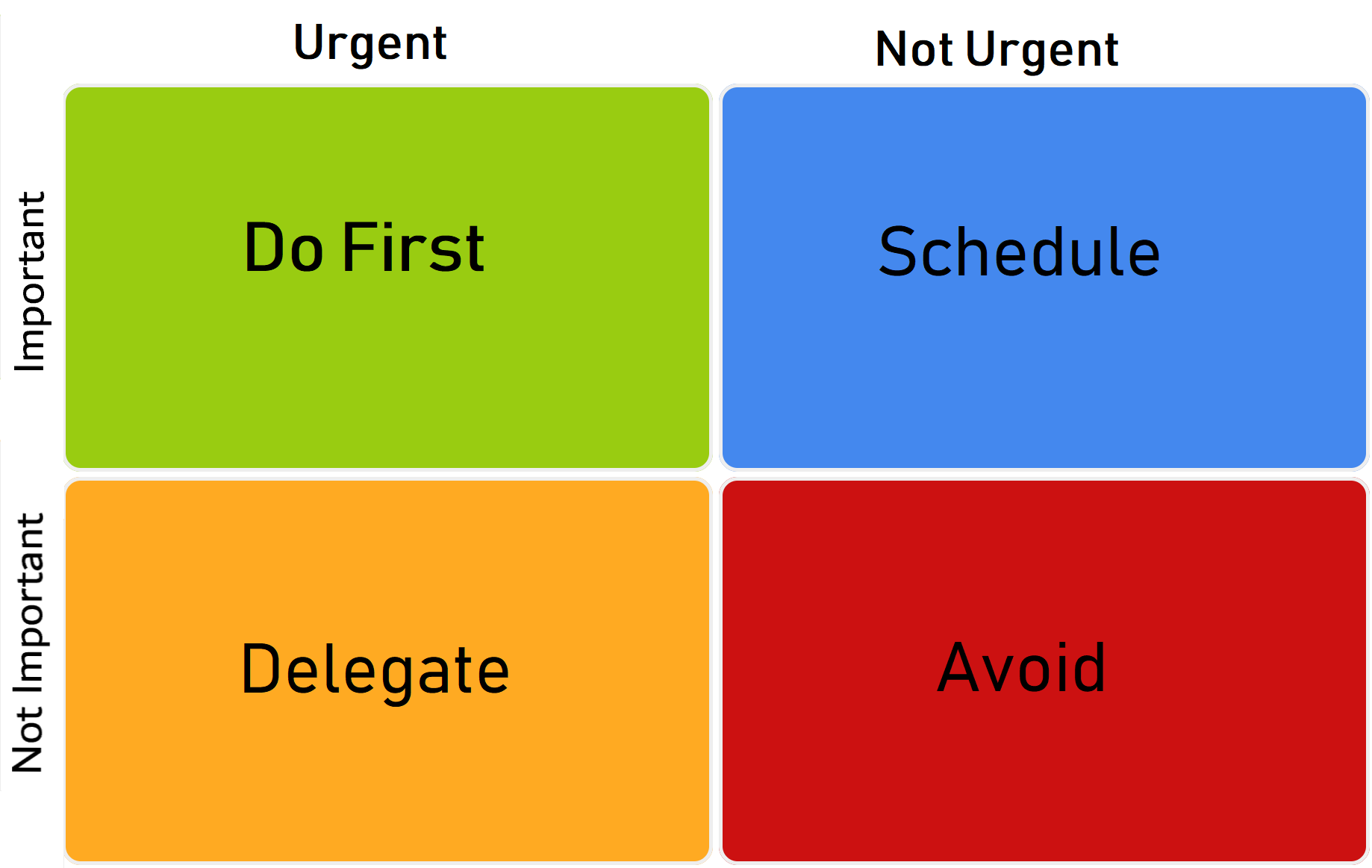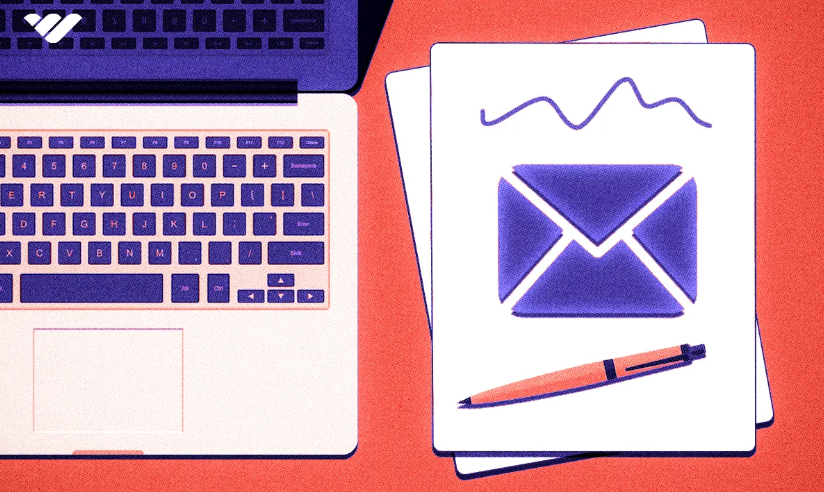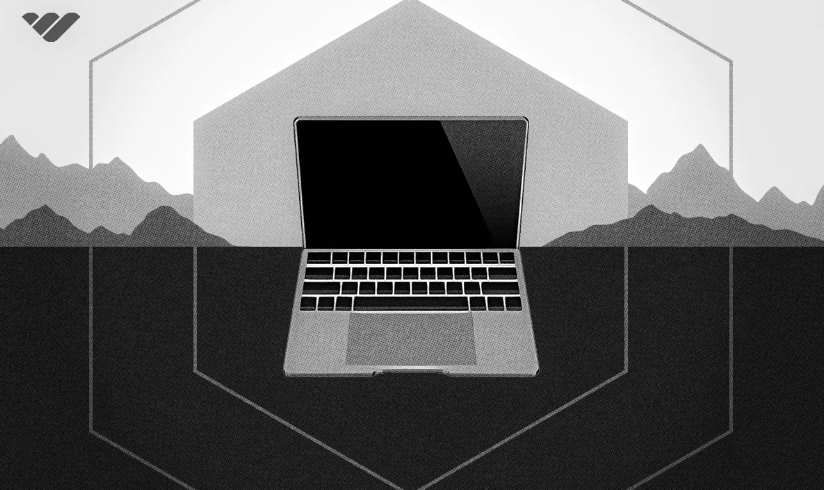Remote work can be challenging, but these 40 productivity hacks will help you stay focused, plan ahead, and work smarter in 2026.
Key takeaways
- Plan your day the night before and break large projects into smaller tasks to overcome procrastination.
- Eliminate digital distractions by turning off notifications, using app blockers, and checking emails only at fixed times.
- Create physical boundaries between work and relaxation spaces to maintain focus and healthy work-life balance.
Douglas Adams once wrote "I love deadlines. I love the whooshing noise they make as they go by."
If you empathize with that sentiment a little too much, try these productivity hacks to help you get started and be more productive when you're working from home.
40 simple tips to improve your productivity
1. Plan each day the night before

At the end of each working day, review what you've accomplished and spend a few minutes writing out a list of tasks to tackle the following day.
Following this routine will help you "shut down" for the night and maintain a good work/life balance.
It'll also help you get started quickly each morning, because you already know what needs to be done.
How to plan ahead:
There are many good, free tools that you can use to plan the day ahead. One such tool is Todoist, a simple daily planner app that has a free plan. Another is Google Calendar, which is easy to integrate with other people for work or family calendar management.
Or, you can stick with a traditional pen-and-paper journal method.
2. Give tasks a priority

Assign each task a priority based on how long it will take, and how important it is to your current project.
How to prioritize:
Consider using the Important/Urgent decision matrix for decision-making. Using this system, tasks can fall into one of four categories, in order of priority:
- Important and Urgent
- Important and Not Urgent
- Not Important and Urgent
- Not Important and Not Urgent
Evaluating tasks based on those criteria helps you decide which jobs to focus on.
3. Start with something small
Keep a couple of small, simple tasks on your to-do list so you can mentally "warm up" at the start of each day.
The satisfaction of ticking off a task as completed can help you find the motivation to take on bigger tasks.
Starting small:
Look over your checklist in the morning and assign a timeframe to each one. Sending an email may take 5 minutes, whilst ordering stock will take an hour. Start with the email, get that sense of accomplishment, and tackle your tasks.
4. Don't let planning get in the way of doing
Bullet journals, task planners, and habit trackers are all useful tools, but it's very easy to fall into the trap of spending a huge amount of time each day on 'busywork' rather than getting important things done.
Keep your routines simple, and use only the tools that help you be more productive.
How to keep it simple:
If you're easily distracted by bullet journals with Washi tape and planners full of colored tabs, then use a simple task planner like Todoist and only put three tasks on each day.
Even if you know you have to do 15 tasks that week, just put three on the list for that day. Focus on those, don't get distracted by other tasks, and work your way through bit by bit.
5. Turn off notifications on your phone

Turn off notifications on your personal phone, or leave it in another room while you're working. Limit notifications on your work phone to apps or contact methods that are used only for urgent requests.
This will help reduce the number of times you're interrupted throughout the day, and help you focus on important tasks.
Even better - use a phone-blocking app to really focus. These apps let you set a timer to block out certain apps on your phone, so if you're constantly checking Instagram or TikTok you can limit your activity on those apps during work time.
Top apps for phone/laptop/desktop focusing:
- Freedom.to
- Getcoldturkey.com
- Selfcontrolapp.com
For more productivity apps that help maximize your time, read our guide.
6. Remember that emails don't need instant replies

How many times have you been in the middle of a task then opened an email, gotten distracted, and not returned to finish what you were doing?
Get in the habit of checking your email a couple of times a day at fixed times. Close your email app outside of those times, so you're not distracted by messages coming in. You can also unsubscribe from mailing lists to reduce the amount of junk you receive, so there are fewer emails to process when you do log on.
7. Have a separate machine or desktop environment for work
In an ideal world, your employer would provide you with a laptop or desktop machine for work purposes.
If that isn't the case, set up a separate desktop environment for work, so you don't see your games, social media bookmarks, and other distractions while you're on your computer. You can create a new user on your computer quite easily in browsers such as Chrome.
8. Keep your desk tidy
Researchers have found that cluttered environments can be detrimental to your mental health. Our brains can only cope with a limited amount of stimuli, and being surrounded by clutter can make us feel tired, stressed, and distracted.
Tidying your desk doesn't just make it easier to find things, it helps you focus too.
9. Have a focus playlist to help you get in the zone
White noise has been found to improve cognitive performance in some individuals. There's also a trend of people using "focus playlists" with relaxing acoustic music to block out distractions. Train your brain to associate those sounds with productivity by having set playlists for work and relaxation.
10. Find the joy in ticking off small tasks
Video game developers use steadily paced unlocks and achievements to motivate people to keep playing.
Gamify your work by setting occasional short tasks throughout the day so you can feel a sense of pride about ticking them off, and get a motivation boost to start the next, bigger task.
11. Learn to prioritize
One challenge remote workers often face is that they're responsible for managing their own schedules. They have tasks to get done but don't have a lot of contact with a manager who will tell them exactly what needs to be done and when.
If you're the sort of person who feels paralysis when they see a long to-do list, learning to prioritize urgent tasks could help you improve your productivity.
12. Learn to say 'No'
If your schedule is full or you don't have the skills required to do something, it's OK to say "no". Learning how to politely and assertively say no to things is an invaluable life skill.
13. Take big jobs one task at a time

Breaking down a large job into a few smaller, more manageable tasks helps remove the psychological barrier to getting started.
In addition, it's an effective planning tool that helps you identify challenges or potential blockers in your schedule.
14. Make time for your breaks
Work/life balance is a challenge for many remote workers. Set times for starting and finishing work, and times for breaks, and be sure to observe both of them.
This can help you enjoy your breaks more and be more productive during the times when you're supposed to be working.
15. Get some natural light every day
Take a few minutes at lunchtime or during one of your breaks to go for a short walk outside or sit in your garden if you're lucky enough to have one.
Some fresh air and sunlight will help you feel more alert, making it easier to focus.
16. Switch off your laptop when the work day ends
Once your scheduled working hours are done, switch off your laptop and go to a different room to relax, if your home is big enough to do so.
Maintaining distinct separation between your living areas and your workspace will help you have 8 productive working hours a day, instead of 12+ hours of brain fog and frustration.
17. Use a time-tracking tool
Time-tracking tools aren't just for people who invoice by the hour. They can provide valuable insights into where your time is really going.
Are you browsing Reddit and Facebook for hours on end? Do you unconsciously switch tabs to check your email every few minutes? Time-tracking software can alert you to bad habits and time-wasting websites.
18. Respect deadlines, don't fear them
Rather than thinking of final deadlines as looming threats that you have to "beat", think of those dates and times on your project planners as guard rails to keep you on track.
When you respect self-imposed deadlines and try to work at a steady cadence, you'll feel less stressed, and have more time left over to deal with unexpected issues or emergencies.
19. Don't let perfect be the enemy of good
The need to constantly refactor and optimize affects people from all kinds of professions. From writer's block to a coder's fight with bugs, perfectionism is only good in moderation.
If you're struggling to tick off a task, or even start because you don't think you can get it "just right", remember that doing something is almost always better than doing nothing. Make a start, and be proud of what you achieve.
20. Discover what motivates you

If you're faced with a mundane task that you just don't want to start, think about the bigger picture. For some people, it could be that there's an element of your job you don't enjoy (such as writing reports), but that you do enjoy celebrating a successful product release day.
Alternatively, maybe you don't enjoy your job all that much, but you can focus on the performance review and bonus, and your long-term life goals, like getting fit and healthy and running that marathon.
21. Teach friends and family that you really are working
Many people who don't work from home struggle to respect the working hours of those who do. If you've found that people are constantly dropping by or asking you to run errands, it's time to set boundaries.
Turn your phone off when you're "at work", and shut the door to your home office, if you have one.
If you can't get away from distractions at home, take your laptop and work somewhere else. Repeat this as many times as necessary to get people to start respecting your time.
22. Join a coworking space

One great way to get away from constant distractions is to join a co-working space. By having a location outside of the house where you can work in a quiet and comfortable environment, you should find it easier to get "in the zone" and be productive.
Co-working spaces usually have reliable wi-fi, refreshments, and quiet meeting spaces, making them a good option for those days when you have a deadline to focus on or are holding an important meeting.
23. Invest in a good desk and headset
If you have no choice but to work from home, make sure you have a comfortable desk and a good noise-canceling headset. These two investments will work wonders in terms of making you feel more comfortable and making it easier for you to focus.
If you're an employee, you may find your boss is willing to cover the cost of making your workspace safe and comfortable. If you're self-employed, treat it as both a business expense and an investment in your long-term health and well-being.
24. Have different rooms for different jobs
If you're lucky enough to have the space, try to have different environments for different tasks. For example, you might work in your home office, study in your kitchen, and relax in the living room.
By keeping to this kind of routine, you'll subconsciously start to associate each room with a specific task, which helps you get started more quickly.
25. Re-familiarize yourself with pens and paper
If you really need to remember something, write it down on a piece of paper, or use a tablet PC with a stylus.
The physical act of writing helps seal things in your memory more effectively than typing it out or making a voice note.
26. Have a morning routine
Morning commutes to the office may not be fun, but they're a few extra minutes for people to wake up and mentally prepare for work. If you work from home, you won't have that luxury but you can get the benefit of it by following a set routine every morning.
Find a short podcast to listen to while you have breakfast, or take a stroll around the block while you drink your morning coffee so you have a few minutes to mentally switch on before work.
27. Join an online homeworking community
Social isolation can be an issue for remote workers. An online homeworking community is a good way to recreate those water cooler conversations. Just make sure you don't end up spending too much time active in those chat rooms!
You'll find the communication in these spaces is generally more relaxed and organic than on communities such as LinkedIn, where people are constantly looking for new job opportunities.
28. Schedule time for upskilling

Working smarter, not harder, is probably the best productivity life hack there is. Invest some time every month into learning about new tools and technologies that can boost your productivity or make you more profitable within your industry.
Perhaps you are missing an opportunity to make money from affiliate marketing, or maybe you could improve ROI by improving your ecommerce delivery process.
Not only will this make your current job easier, but it'll give you skills that will make you more appealing to future employers too.
29. Don't tie yourself to task and habit trackers if they don't work
Some people swear by blocking time-wasting sites. Others love time-tracking or habit-building websites such as Habitica.
If those things work for you, that's great. If you find them unhelpful, don't feel guilty about ditching them and finding other ways to build good habits.
30. Try the two-minute rule
Multitasking usually isn't as efficient as you think it would be, but that doesn't mean you should always avoid task switching.
One useful rule of thumb to follow is that if you see a task that would only take you two minutes to complete, it's OK to stop what you're doing and clear the smaller task from your to-do list. If it may take longer, it can wait.
31. Learn the psychology of color
If you're not a graphic designer who requires perfect color fidelity on your screen at all times, consider using an app that changes the color of your screen throughout the day, reducing your exposure to blue light in the evenings, when you need to wind down.
Also, experiment with using red and blue in your working environment, because these colors are associated with focus and calming, respectively.
32. Friction is a great way to prevent distractions
Make it difficult for yourself to procrastinate. You don't have to go to the lengths of blocking websites on your computer if you don't want to (or if you know that you'll just turn the blocking extension/software off).
Even smaller changes such as leaving your phone in another room, or logging out of social media sites so the experience is less fun can make a big difference to how much you use them.
33. Set goals and reward yourself for completing them

Set a weekly goal based on completing certain important tasks, and give yourself a small treat if you achieve it.
For example, pick an old TV show you love, and tell yourself you'll watch an episode on Friday night if you complete all the critical tasks on your to-do list. Having something to look forward to makes those mundane jobs easier.
34. Don't be harsh on yourself when things go wrong
Sometimes you will miss a deadline, or make a mistake and have to re-do a big job. Don't be hard on yourself when that happens.
In most cases, your boss or client will understand that things sometimes go wrong. The important thing is that you take responsibility and fix the issue to the best of your ability.
35. Find someone to help with accountability
If you struggle with motivation, find someone else who is in the same situation and work together to hold each other accountable.
If you don't work in the same company, you don't have to go as far as sharing company secrets. Daily check-ins to ask if you finished that big report and remembered to eat something today, can go a long way.
36. Get dressed even if you don't leave the house
Pick out a work "uniform" and put it on before you start work each day. This doesn't have to be a full suit if you don't enjoy wearing that sort of thing, just something different from your usual "relaxing at home" outfit.
By getting dressed in something reasonably smart, you're sending a signal to yourself that you're ready to work. As an added benefit, if you get an unexpected Zoom call, you'll also be ready to answer it.
37. Uphold high standards of professional etiquette
Instant messaging and email feel far less personal than other forms of communication, but that doesn't mean that it's OK to be unprofessional. Make an effort to be polite, prompt, and thorough when communicating with people, even over less formal channels.
It might feel like maintaining this kind of professional tone takes more time, but it can actually save you time in the long run, because it can cut down on the back-and-forth required to get things done.
38. Be willing to try new things
Technology is constantly evolving, and whether you're running your own online business or working for someone else, there are always new methods, tools, and systems out there to help you work more efficiently.
Keep a beginner's mindset, and be willing to invest time into learning new things. Not everything you try will be an improvement on the old way of doing things, but sometimes you'll find something that saves you a lot of time.
39. Build the right toolchain
Don't underestimate the value of having the right tools available to you. It's much easier to be productive when you don't have to wrestle with error-prone processes and confusing software applications.
Choose the right tools for the job, and you'll find things go much more smoothly. You'll be able to spend more time on the creative and human elements of your work, and less time fighting with your tools.
40. Just do what works for you

Bookstores and podcast apps are full of guides written by so-called productivity gurus, and if you spend any length of time researching that niche, you'll notice they all have differing opinions.
There's no one "right way" to be productive. For every early riser who believes in grit and discipline, there's a coffee-fueled startup owner who swears by being a night owl and considers bullet journals to be life-changing.
The true secret to productivity is to figure out what motivates and works best for you. If you have family responsibilities, health conditions, or other challenges that place demands on your time and energy, figure out how to work around those. When you're happy and motivated, you'll perform at your best.
Grow your business the smart way with Whop
Whop isn’t just a tool—it’s a game-changer for remote workers and business owners who value efficiency, growth, and community.
Save time and grow your business with Whop’s powerful, all-in-one platform. Whether you’re selling digital products, running an online community, or managing a coaching business, Whop streamlines your workflow so you can focus on what matters most.
Through Whop's Discover page, you can also connect with thriving communities of like-minded entrepreneurs to help you learn and grow. Whether you’re a dropshipper, an Amazon FBA specialist, or a trader, you’ll find expert-led groups to share ideas, gain insights, and stay motivated.
Why go it alone when you can join a network of business owners who’ve been there? Start using Whop for free today—it only takes 10 minutes to set up your whop and streamline your business!


![40 productivity hacks every remote worker needs [2026]](/blog/content/images/size/w2000/2024/11/Top-x-productivity-hacks-for-remote-workers-copy.webp)
